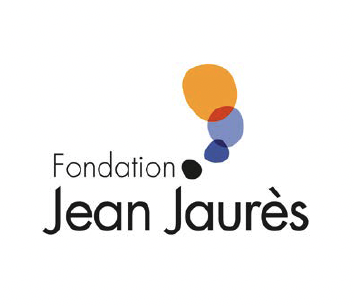18/04/2023 [format hybride]
Renato CAMURRI, Professeur à l'Université de Vérone
Quelle mémoire pour l'émigration italienne ?
S'inscrire
Event in français
Mercredi 7 Juin 2023
9h15 : Accueil Café
9h30 : OUVERTURE
- Mathias VICHERAT (directeur de Sciences Po)
- Paul-André ROSENTAL (directeur du Centre d’histoire de Sciences Po)
- Jean-Marc AYRAULT (ancien Premier ministre, président de la Fondation Jean-Jaurès)
10h00 : INTRODUCTION SCIENTIFIQUE
- Marion FONTAINE (Sciences Po, CHSP) et
- Mathieu FULLA (Sciences Po, CHSP)
10h30-12H30 : PREMIÈRE PARTIE
les engagements d’un socialiste
Présidence : Frédéric SAWICKI (Univ. Paris I Panthéon-Sorbonne, CESSP)
- Les Jeunesses Socialistes et et la Fédération nationale des Foyers Léo Lagrange | Christine BOUNEAU (Univ. Bordeaux-Montaigne, CEMMC)
- Pierre Mauroy et le monde enseignant. Un parcours à la lumière de l’école ? | Ismaïl FERHAT (Univ. Paris Nanterre, CREF)
- L’ascension contrariée dans la SFIO | Arnaud DUPIN (docteur en histoire, professeur d’histoire-géographie, lycée Jean-Baptiste de Baudre, Agen)
- Moderniser le socialisme | Alexandre CHABERT (Sciences Po, CHSP)
Débat / Pause déjeuner
14h00-15H45 : DEUXIÈME PARTIE : UN ÉLU EN ACTION
Présidence : Alain CHATRIOT (Sciences Po, CHSP)
- L’élu du Nord face à la désindustrialisation | Marion FONTAINE (Sciences Po, CHSP)
- Le maire de Lille | Rémi LEFEBVRE (Univ. de Lille, CERAPS)
- Pierre Mauroy parlementaire | Maxime LAUNAY (Univ. d’Orléans, POLEN)
Débat / Pause-café
16h15-18h00 : TABLE RONDE DE GRANDS TÉMOINS
Introduite et présidée par
- Gilles FINCHELSTEIN (secrétaire général de la Fondation Jean-Jaurès)
avec notamment les témoignages de - Henri GUILLAUME, ancien conseiller auprès du Premier ministre chargé de l’économie et du plan (1981-1984) et
- René CESSIEUX, ancien chargé de mission puis conseiller technique auprès du Premier ministre chargé du travail, de l’emploi (1981-1984)
Jeudi 8 Juin 2023
10h30-12h30 : TROISIÈME PARTIE : L'HOMME D'ÉTAT
Présidence : Delphine DULONG (Univ. Paris I Panthéon-Sorbonne, CESSP)
- De l’homme d’appareil à l’homme d’Etat : l’art de se rendre incontournable (1971-1981) | Noëlline CASTAGNEZ (Univ. d’Orléans, POLEN)
- Pierre Mauroy et les politiques du travail et de l’emploi : la rigueur et l’imagination ? | Matthieu TRACOL (docteur en histoire contemporaine, professeur agrégé d’histoire-géographie au Lycée Albert-Triboulet de Romans-sur-Isère)
- La décentralisation tranquille. L’engagement au long cours d’un homme d’État décentralisateur | Anne-Laure OLLIVIER (Professeure en classes préparatoires littéraires, lycée Albert Schweitzer, Le Raincy
- L’Europe, contrainte ou opportunité ? Concilier réforme et rigueur | Laurent WARLOUZET (Sorbonne-Université, SIRICE)
- Mauroy et l’histoire de la gauche | Gilles CANDAR (président de la Société d’études jaurésiennes)
Débat / Pause déjeuner
14h00-16h30 : QUATRIÈME PARTIE : UN SOCIAL-DÉMOCRATE INTERNATIONALISTE
Présidence : Sandrine KOTT (Univ. de Genève, Département d’histoire générale)
- Du Nord au vaste monde : genèse de l’internationalisme mauroyiste | Judith BONNIN (Univ. de Bordeaux Montaigne, CEMMC)
- L’Union de la gauche (1972-1981) à la lumière de la logique social-démocrate | Gerassimos MOSCHONAS, (Univ. Panteion Athènes, Department of Political Science and History)
- L’impossible social-démocratisation du Parti socialiste : Pierre Mauroy Premier secrétaire | Antony BURLAUD, Univ. Paris 1 Panthéon-Sorbonne, CESSP)
- Le président de l’Internationale socialiste | Mathieu FULLA, Sciences Po, CHSP)
- Pierre Mauroy face à la « troisième voie » britannique. Ou quand l’internationaliste rejoint le social-démocrate | Thibaut RIOUFREYT, Université Lumière Lyon 2, Triangle)
16h30 Conclusion | Marc LAZAR (Sciences Po, CHSP)
Event in français
Location:
Traits de mémoire
Bandes dessinées et
Seconde Guerre mondiale.
Vincent MARIE,
Docteur en histoire contemporaine et agrégé d'histoire-géographie. Université de Montpellier
▸ S'inscrire
Event in français
Seeking Refuge in the Arab World.
New perspectives on European Refugees, Migrants and Exilees in the Middle East and North Africa, 19th-20th centuries
The workshop „Seeking Refuge in the Arab World. New perspectives on European Refugees, Migrants and Exilees in the Middle East and North Africa, 19th-20th centuries” aims at investigating the societies of the Middle East and North Africa as spaces of arrival and transit for refugees from Europe in the 19th and 20th centuries.
In the light of current arrivals of Arab refugees in Europe, historiography of the last 20 years has started to highlight the presence of Arab migrants in European countries as well as their political and social engagement there since the 19th century. However, the fact that Europeans where themselves fleeing to Arab countries in this period has only recently attracted the interest of historians. It seems worthwhile to deepen this question further and to explore the arrival of refugees from Europe in the Middle East and North Africa and their interaction with the civil societies, but also the state institutions in these countries. A comparative perspective both in terms of space and of time seems particularly promising as it asks for the points in common and the differences between the different Arab countries as well as the evolution of their refugee and migration policies over time. In this regard, the respective role of the Ottoman, Arab national and colonial governmental structures will be of particular interest in order to understand the different political factors at stake for the interactions between refugees and the local societies.
(By exploring these research questions, the workshops seeks to contribute to different fields of research. First of all, it is conceived in dialogue with the historiography on European communities which had been present in the Middle East and North Africa often since some generations, such as the Greek, Italien or French communities in Egypt or Tunis. Adding refugees to this picture helps to differentiate the different categorgies at stake (migrants, refugees, diaspora) as well as the blurring boundaries between them. In addition, this research focus contributes to the historiography on humanitarian organizations in the Middle East, being from internaitonal, national or local origin. Integrating Euroepan refugees into their field of action shows that there were not only Western aid givers on the one side and Arab aid recievers on the other, but that there were humanitarian actors and beneficiaries on all sides. Finally, this research contributes to the historiography on migration in the Arab world and on Arab, in particular Palestinian refugees in the Middle East, by showing that Arab socieites and state structures had been confronted to other refugees earlier or at the same time and that the question of refugees or migration has never been an affair of inter-Arab relations only, but of European-Arab relations at large. It seems thus important to integrate refugees from Europe into the larger question of the transformation of refugee and migration policies in the Middle East and North Africa between colonialism, anti-colonial nationalism and internaitonal relations in the 19th and 20th centuries. As a result, this research promises new insights into European as well as modern Middle Eastern and North African history.)
Event in français
Location:
09/03/2023 – Séance 2
Juliette CADIOT (EHESS) et Gilles FAVAREL GARRIGUES (Sciences Po, CERI),
État et corruption en URSS et Russie contemporaine (autour de l’ouvrage La société des voleurs. Propriété et socialisme sous Staline, Ed. EHESS, 2021 et La Verticale du pouvoir. Allégeance et demande d'ordre en Russie poutinienne, La Découverte, 2023).
S'inscrire
Event in français
Location:
06/06/2023 [format hybride]
Uoldelul CHELATI DIRAR, Professeur à l'Université de Macerata
La colonisation italienne vue d'Afrique
S'inscrire
Event in français
L'INSTITUTION DU SOCIAL
- Julien CARANTON , Université Grenoble Alpes
Fabriques collectives et régulation sociale au XIXe siècle (Angleterre et France).
- Grégory DUFAUD, IEP de Lyon
Fabriquer les valeurs de l'homme en Union soviétique.
S'inscrire
Event in français
Location:
Vendredi 12 Mai 2023, 12h30-14h30, Campus de Paris
- Guillaume BLANC (Université de Rennes 2),
L'événement postcolonial : construction de la nature et de l'Afrique indépendante - Séance coordonnée par
Giacomo PARRINELLO (Sciences Po, CHSP)
Event in english
Location:
L’histoire des sciences, des techniques et de l’environnement à Sciences Po
Event in english
Location:
13/06/2023 [format hybride]
Lorenzo DE SABATTA, EHESS,
Déposer les armes, prendre la parole. La lutte armée d'extrême gauche en Italie (1969-2015) : narrations autobiographiques, représentations historiques et controverses mémorielles
S'inscrire
Event in français
Seeking Refuge in the Arab World.
New perspectives on European Refugees, Migrants and Exilees in the Middle East and North Africa, 19th-20th centuries
The workshop „Seeking Refuge in the Arab World. New perspectives on European Refugees, Migrants and Exilees in the Middle East and North Africa, 19th-20th centuries” aims at investigating the societies of the Middle East and North Africa as spaces of arrival and transit for refugees from Europe in the 19th and 20th centuries.
In the light of current arrivals of Arab refugees in Europe, historiography of the last 20 years has started to highlight the presence of Arab migrants in European countries as well as their political and social engagement there since the 19th century. However, the fact that Europeans where themselves fleeing to Arab countries in this period has only recently attracted the interest of historians. It seems worthwhile to deepen this question further and to explore the arrival of refugees from Europe in the Middle East and North Africa and their interaction with the civil societies, but also the state institutions in these countries. A comparative perspective both in terms of space and of time seems particularly promising as it asks for the points in common and the differences between the different Arab countries as well as the evolution of their refugee and migration policies over time. In this regard, the respective role of the Ottoman, Arab national and colonial governmental structures will be of particular interest in order to understand the different political factors at stake for the interactions between refugees and the local societies.
(By exploring these research questions, the workshops seeks to contribute to different fields of research. First of all, it is conceived in dialogue with the historiography on European communities which had been present in the Middle East and North Africa often since some generations, such as the Greek, Italien or French communities in Egypt or Tunis. Adding refugees to this picture helps to differentiate the different categorgies at stake (migrants, refugees, diaspora) as well as the blurring boundaries between them. In addition, this research focus contributes to the historiography on humanitarian organizations in the Middle East, being from internaitonal, national or local origin. Integrating Euroepan refugees into their field of action shows that there were not only Western aid givers on the one side and Arab aid recievers on the other, but that there were humanitarian actors and beneficiaries on all sides. Finally, this research contributes to the historiography on migration in the Arab world and on Arab, in particular Palestinian refugees in the Middle East, by showing that Arab socieites and state structures had been confronted to other refugees earlier or at the same time and that the question of refugees or migration has never been an affair of inter-Arab relations only, but of European-Arab relations at large. It seems thus important to integrate refugees from Europe into the larger question of the transformation of refugee and migration policies in the Middle East and North Africa between colonialism, anti-colonial nationalism and internaitonal relations in the 19th and 20th centuries. As a result, this research promises new insights into European as well as modern Middle Eastern and North African history.)
Event in english


 06/06/2023
06/06/2023 17:00
17:00 




